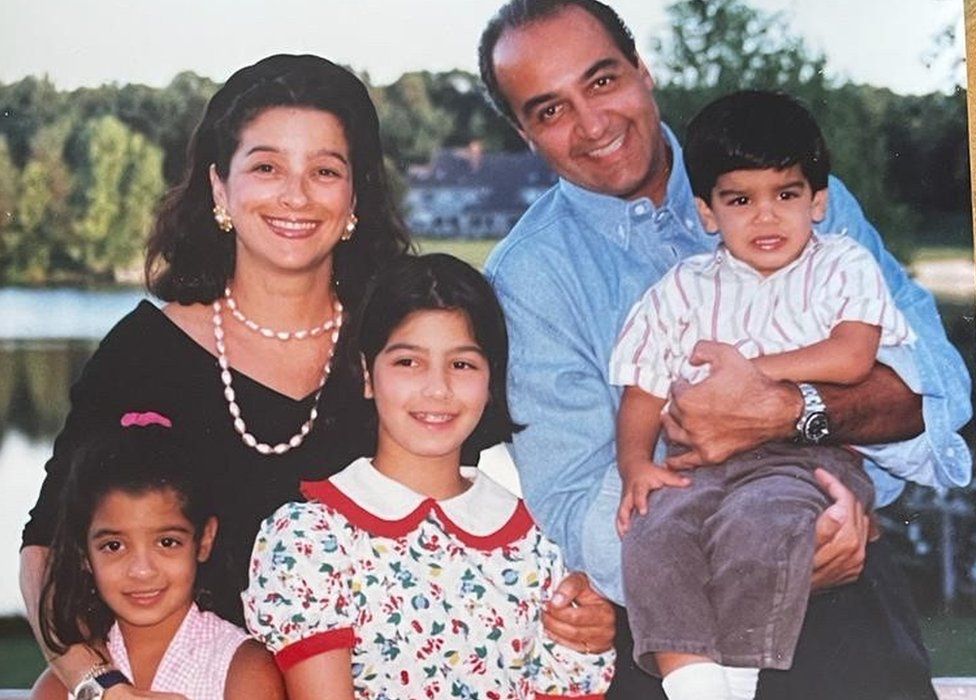The family of a British-US national who they expected to be freed by Iran last week as part of a deal with the UK has gone on hunger strike, they say.
Morad Tahbaz, 66, who also has Iranian citizenship, has been confined to a hotel, the Foreign Office has said.
His sister Taraneh told the BBC his family was “absolutely distraught” and feared he would be forgotten about.
The Foreign Office says it is continuing to lobby Iran at the highest levels for Mr Tahbaz to be released.
Hopes had been raised that Mr Tahbaz would be freed when Nazanin Zaghari-Ratcliffe and Anoosheh Ashoori were released and flew back to the UK on Thursday, but he was returned to Evin prison on Friday.
The Foreign Office said it had been informed by the Iranians this move was in order for Mr Tahbaz to have an electronic ankle bracelet fitted. On Sunday, the Foreign Office said he had been moved to a hotel in Tehran.
Appearing alongside Mrs Zaghari-Ratcliffe at a news conference on Monday, Mr Tahbaz’s daughter, Roxanne, said the family had been led to believe her father would be released with the other dual nationals.
“From the outset, we were always assured by the [UK government] that my father would be included in any deal that was made to release all of the hostages.
“So we’re truly devastated, knowing now that this was not the case.”
Roxanne Tahbaz said the family “just want them [the UK government] to do whatever they have to do” to bring her father and mother, who is also subject to a travel ban inside Iran, back home.
Speaking on the Today programme earlier, Taraneh Tahbaz said Mr Tahbaz had gone on hunger strike.
“He continues to be used as a pawn on a chessboard and it’s very distressing,” she said. ” We’re agonised and we’re absolutely distraught and we don’t know what the next moves are.”
Mr Tahbaz was doing conservation work when he was held in Iran in January 2018.

He and seven other conservationists were accused of collecting classified information about Iran’s strategic areas under the pretext of carrying out environmental and scientific projects.
The conservationists – members of Persian Wildlife Heritage Foundation – had been using cameras to track endangered species including the Asiatic cheetah and Persian leopard, according to Amnesty International.
All eight denied the charges and Amnesty International said there was evidence that they had been subjected to torture in order to extract forced “confessions”.
He was sentenced to 10 years in prison with his colleagues on vague charges of spying for the US and undermining Iran’s security.
Last year, UN human rights experts warned that Mr Tahbaz, who has cancer and has twice had Covid, had been denied access to proper treatment in prison despite his health condition deteriorating.

- WHERE DID ROMAN ABRAMOVICH’S MONEY COME FROM? Panorama investigates the deals that made his fortune…
- THE INSTAGRAM EFFECT: What power does the platform hold over us?


